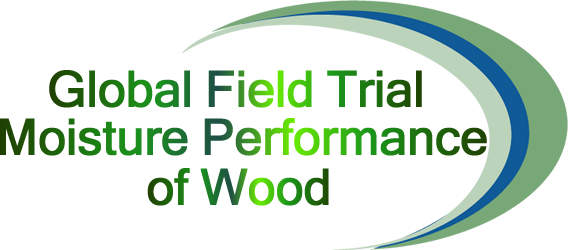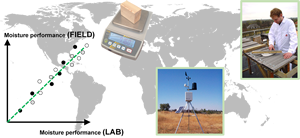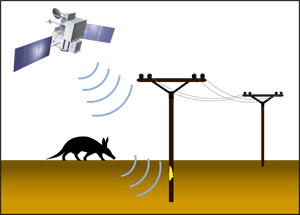Research Bulletin Board

IRG56 Papers Special Issue
For this year’s IRG56 conference being held in Yokohama, Japan, the Acta Silvae et Ligni has offered to publish a special issue linked to the special session Circular Economy in Wood Preservation Sector presentations in IRG56. More details on Acta Silvae et Ligni can be found at https://asetl.splet.arnes.si/aims-scope/ . The Editor in Chief for Acta Silvae et Ligni is Dr. Boštjan Lesar.
Since 2023, Acta Silvae et Ligni has been included in the Journal Citation Reports (JCR) database, and since 2022, it has been indexed in the Emerging Sources Citation Index (ESCI). Acta Silvae et Ligni adheres to open-access standards, ensuring free access to all published content. There are no publication fees for authors, as we strive to facilitate unrestricted access to scientific findings for the broader research community and promote knowledge exchange. All received articles are peer-reviewed using a double blind peer review process by at least two reviewers.
Previously, for example with IRG54, it has been possible to publish a full paper in a peer-reviewed journal, as was the case in 2023 with the journal Bois et Forêts des Tropiques (https://revues.cirad.fr/index.php/BFT/index).
If you are interested to submit your IRG56 paper to the Acta Silvae et Ligni Special Issue, the submission deadline is 31 August 2025.
If you have any questions on this opportunity, please contact Dr. Boštjan Lesar directly at this link.
-----------------------------------------------------------------------------------------------------------------------------------------

For this year’s IRG56 conference being held in Yokohama, Japan, the International Wood Products Journal (IWPJ) has offered to publish a special issue linked to the presentations in IRG56. More details on IWPJ can be found at http://www.journals.sagepub.com/home/iwp. The Editor in Chief for IWPJ is Dr. Dennis Jones.
As part of the offer, IWPJ do not charge for articles published in print. However, there are charges should open access be required. Anyone wishing open access should check if their institution has an agreement with SAGE publishers for open access manuscripts. However, there may be an option to allow the special issue a period of being free to view for up to 6 months, especially for reviews.
Previously, for example with IRG54, it has been possible to publish a full paper in a peer-reviewed journal, as was the case in 2023 with the journal Bois et Forêts des Tropiques (https://revues.cirad.fr/index.php/BFT/index).
If you are interested to submit your IRG56 paper to the IWPJ Special Issue, the submission deadline is 31 August 2025.
If you have any questions on this opportunity, please contact Dr. Dennis Jones directly at this link.
-----------------------------------------------------------------------------------------------------------------------------------------
Call for Joint Field Trial – Moisture Performance of Wood
Objectives
This initiative aims at the establishment of mathematical relationships between (1) measures from simple laboratory experiments representing different types of wood moisture uptake and release and (2) the time of wetness that those timbers experience during outdoor weathering at climatically different locations.
What your benefit will be
You’ll be part an international joint IRGWP collaborative research activity. You’ll get access to the full data set provided by the participants including those from laboratory tests performed at selected laboratories. The results of the trial shall be presented at IRG 54 in Cairns, Australia, and will get published as a joint IRG-paper with you as a co-author.
Costs involved
The costs for raw material and manufacturing of the specimens will be covered by the University of Goettingen. Costs for shipment of the wood specimens will be strongly dependent of the destination and need to be covered by the respective participant.
Call for participation
We strongly encourage your participation. The set-up of this global collaborative trial will be very simple, labour and material costs will be rather low, while the scientific impact of teaming up for this initiative will be significant.
Click on image above to view enlarged.
To read the complete description and for contact information to participate please click here.
-----------------------------------------------------------------------------------------------------------------------------------------
Project Aardvark

Call for In-ground Field Trial Data
IRG Durability Database
Background
Established in 2014, one of the many initiatives of the IRG-WP is an an open, web-based durability database. The overall aim of the IRG-WP durability database is the allocation of wood durability test results for comparative studies and reanalyses, serving as a data pool for service life prediction and modelling. In the context of reanalysis, remotely-sensed satellite site data has been combined with in-ground field trial data from the durability database to create the first iteration of an in-ground wood decay model.
Objective of data call
Since in-ground field trials are constantly being established and concluded at various IRG-WP partner institutions and universities, the hope is that such field trial data is also constantly submitted to the IRG-WP durability database. With additional submissions of data to the durability database, the developed in-ground wood decay model can be periodically updated and improved. The purpose of the model is to calculate decay rating for a given exposure period, for a given wood species at any location on the earth’s surface.
Therefore, Project Aardvark envisions the creation of a continually updating wood decay prediction model, based on an extensive wood decay database, in combination with site data from remotely-sensed sources. Data from both static and dynamic soil variables, e.g. soil depth and soil moisture content, have shown to be useful in the development of the model thus far.
Experimental set-up
Field trial data stemming from “graveyard” tests in accordance with recognised EN and/or AWPA standards are welcome. In-ground field trials established at new sites currently not listed as IRG-WP Global Field Test sites are also welcome. For a comprehensive overview of all the current IRG-WP field test sites, please refer to the following map: https://irg-wp.com/field-test-sites-global.html
Material preferences
Principally, all wooden test material is welcome! However, it is less important to submit the results of wooden test material treated using early-stage experimental preservation and/or modification systems. More important is untreated wooden test material, or material treated with established, commercially available preservation and/or modification systems of known retention levels.
Data requirements and submission
For more information on how to submit data to the IRG-WP durability database, please refer to: https://www.irg-wp.com/durability/index.html
Alternatively, please contact Brendan Marais, Philip van Niekerk, Marian Schönauer, or Christian Brischke at the University of Goettingen:
bmarais@uni-goettingen.de
philipbester.niekerk@uni-goettingen.de
marian.schoenauer@uni-goettingen.de
christian.brischke@uni-goettingen.de
Click on image above to view enlarged.
-----------------------------------------------------------------------------------------------------------------------------------------
-----------------------------------------------------------------------------------------------------------------------------------------


